
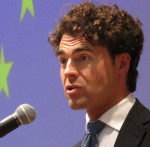
Alberto
Alemanno

Alberto Alemanno is an academic, author and political activist, and has been Jean Monnet Professor in EU Law at HEC Paris since 2009. He is internationally known for his scholarly and public interest work on the democratisation of the European Union and the use of law to advance the public interest. He has developed the theory of citizen lobbying to rethink representative democracy in the national and transnational space. Alberto was named Young Global Leader by the World Economic Forum in 2015. His last book, Lobbying for Change: Find Your Voice to Create a Better Society (Iconbooks, 2017), provides a timely analysis and guide to levelling the democratic playing field by empowering ordinary citizens to speak up and inform policy decisions at local, national and international level. He is the founder and Director of the civic start up, The Good Lobby and a regular contributor to Le Monde, Politico Europe, and Bloomberg.
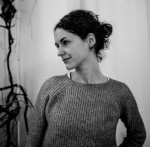
Camille
Aubry

Bristol-based French illustrator and graphic novel artist, Camille Aubry studied architecture before completing the MA Illustration at Camberwell College of Arts. Her graphic novel A Journey to Motherhood was long listed for the Laydeez do Comics Prize 2018. She’s currently working on a bilingual children’s book, At home, which will make the kids see their house through architect’s eyes.
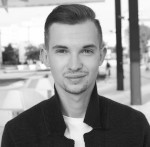
Dominik
Bari

Dominik Bari was born in Kosice, East Slovakia. He began his film career at a young age: in high school, he was already winning multiple domestic and also international awards, as well as working for different TV channels. After high school he moved to Paris, where he was accepted at The International Film and Television School, majoring in cinematography and film editing. Whilst studying, he also worked for different production companies and advertising agencies in Slovakia, Czech Republic, France and the USA. After earning his bachelor’s degree, he moved to London where he enrolled as a master’s student at the prestigious National Film and Television School, specialising in visual effects. His 2018 film, Oymyakon, has been qualified for an Academy Award.

Marc
Bena

Marc is a PwC Partner in the Banking and Capital Markets group. He has over 20 years experience with PwC in both France and the UK, in various industry sectors. He joined PwC UK’s Assurance Executive team in February 2017 as the People leader for PwC’s Assurance practice. Marc is passionate about encouraging and embedding diversity in the workplace. He is delighted to be involved as Master of Ceremony for the Night of Ideas for the second year running.
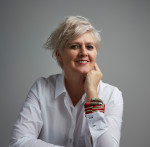
Caroline
Bergvall

© Christa Holka
Caroline Bergvall is a writer, artist and performer of French-Norwegian origin based in London. She works across languages, artforms and media and is increasingly recognised for her distinctive vocal & linguistic practice. Caroline publishes and performs internationally: her projects include performances, installations, books, audio pieces, net-based work, graphic and printed work. Her most recent awards include a Cholmondeley Award for her book/performance work Drift (UK, 2017); she’s the first recipient of new international art writing prize Prix Littéraire Bernard Heidsieck-Centre Pompidou (Paris, Sept 2017). Her current travelling project is called Ragadawn, and is an outdoor sunrise performance, for 2 voices and minoritarian languages, with Gavin Bryars. She is currently Visiting Professor at King’s College London.
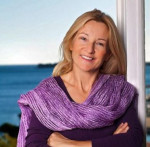
Áinne
Burke

Áinne Burke is an Irish artist, producer/director and writer. She is the current artist in residence at the Grantham Institute – Climate Change and the Environment, Imperial College London. The project Áinne is developing with Imperial, TEAM (The Earth And Me), uses the chemistry of the periodic table to convey that as individuals, we all have a very personal relationship to the earth, and she hopes to raise an awareness and understanding on how we can be more conscious of the way we live, work and play locally for the health of the global family.

Dame Civile

© OJOZ
A fast-rising duo of brothers from Noisy-Le-Sec in the eastern suburbs of Paris, Killian and Marvin’s uncategorisable, defiantly modern soundscapes encompass influences from hip-hop to classic chanson, via the electronic experimentation and twisted pop hooks of James Blake and Björk.
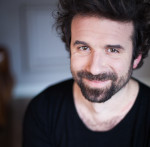
Cyril
Dion

© Fanny Dion
After studying at the École d’art dramatique Jean-Périmony and a brief career as an actor, Cyril Dion coordinated projects for the Fondation Hommes de Parole, which seeks to deepen knowledge of and solve problems at the intersection of religion and global affairs through research and teaching, notably with the Israeli-Palestinian congress at Caux in 2003, 2005 and 2006, and the first and second world Congress of Imams and Rabbis for Peace in Brussels and Seville. In 2007 he founded the ecological movement Colibris (hummingbird in French) with French writer, farmer and environmentalist Pierre Rabhi, where he was director until July 2013 and is now the spokesperson and member of the steering committee. In collaboration with French actress Mélanie Laurent, he wrote and co-produced the documentary Tomorrow, which won the Cesar Award for Best Documentary in 2016. He was actively involved in L’affaire du Siècle campaign and the March for the Climate in France.
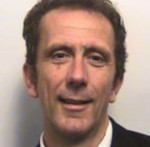
Martin
Evans

Martin Evans is a scientific curator and Professor of Modern European History at the University of Sussex. His research focuses on the political, social and cultural consequences of colonial empires through the example of the French Empire with an emphasis on Algeria. He is the author of Algeria : France’s Undeclared War (Oxford University Press, 2012), which was nominated Book of the Year by the Financial Times, and has contributed to the The BBC History Magazine, meeting with many musicians such as Aswad, Joe Strummer, Mick Jones and Toots and the Maytals. He has curated events for the Brighton Festival, Brighton Fringe Festival and Brighton Film Festival.
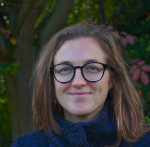
Mary
Fitzgerald

Mary Fitzgerald is editor-in-chief of openDemocracy, the global non-profit news website. She has previously worked at Avaaz, the global campaigning organisation, and is a former senior editor of Prospect Magazine. Her writing has appeared in The Guardian, Observer, New Statesman and others.
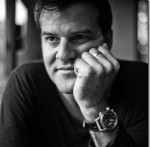
Antoine
Giniaux

Antoine Giniaux is a French journalist, London correspondent for Radio France and ‘grand reporter’ for France Inter. A graduate of the Centre Universitaire d’Enseignement du Journalisme (CUEJ), Antoine holds a degree in Contemporary History and has reported on a great number of the conflicts that have taken place over the last few years in Mali, Central African Republic, Egypt, Tunisia, Gaza, and most recently in Burundi and the Ukraine.
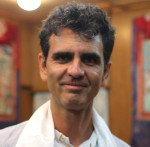
Babak
Goodarzi

Babak Goodarzi’s working life began as a runner for RSA Films, where he became Ridley Scott’s assistant. He then became a freelance Assistant Director working with Ridley Scott, Tony Scott, Mike Leigh, Alan Parker, David Bailey, Mehdi Norowzian, Graham Rose as well as many others. At this time, he also began shooting music videos for Black Dog films, including work for Asian Dub Foundation and Nightmares on Wax, for which he was awarded film prizes at the Edinburgh Film Festival. He has also worked for international clients around the world making commercials corporate films, and has just completed a global cinema campaign for Samsung Galaxy. He has recently become interested in VR and immersive technologies as an art form. The Inner Selfie, his immersive VR work about the Dalai Lama, was showcased at the Sheffield Documentary Film Festival.
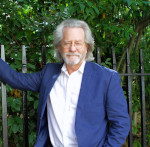
Anthony
Grayling

A. C. Grayling is a British philosopher and founder of the New College of the Humanities, London, where he is also Professor of Philosophy. He is the vice president of the British Humanist Association, and the author of over thirty books, contributing to many leading newspapers in the UK, including The Guardian, The Times, and Prospect Magazine.
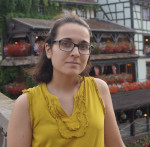
Alice
Guillaume

Alice Guillaume graduated in the summer of 2018 with a degree in geography from the University of Cambridge. During her time as an undergraduate, she was involved in the student-led divestment campaign as part of People and Planet’s Fossil Free movement. Over this period the campaign gained significant traction, featuring in articles in The Guardian and Financial Times and attracting support from notable individuals including Bill McKibben, founder of 350.org, and British MPs across parties.
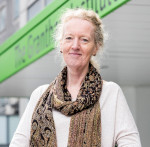
Joanna
Haigh

Professor Joanna Haigh has been co-director of the Grantham Institute at Imperial College London since 2014, before which she was head of the Physics department. She has published widely on climate science and contributed extensively to the popular media. She has been President of the Royal Meteorological Society and a Lead Author on the Intergovernmental Panel on Climate Change. She is a Fellow of the Royal Society, the Institute of Physics, the City & Guilds and the Royal Meteorological Society and is an Honorary Fellow of Somerville College Oxford.
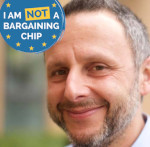
Nicolas
Hatton

Nicolas Hatton is a French national living in Bristol. He was elected délégué consulaire in 2016 and is a founding member of the3million, an EU citizens’ group who since July 2016 have been campaigning for the protection of existing citizens’ rights in the context of Brexit. While the3million advocates for all citizens remaining in the UK with the same rights as they have now, Nicolas is especially focusing on the protection of EU citizens at risk of falling through the net of the Home Office settlement scheme, with the view to achieve long-term integration of the 3.6 million EU citizens into British society.
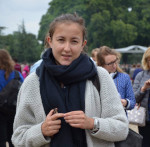
Mathilde
Hériaud

Mathilde Hériaud is the founder and president of Toi d’Europe, a French non-profit organisation documenting the expectations of young people in the European Union. Mathilde is a graduate of Rennes Business School in MSC International Business Negotiation. As a student, she took part in the Brigitte Sauzay Project (Gymnasium Immanuel Kant, Berlin), Comenius (United Kingdom) and ERASMUS (Universidad Carlos III, Getafe Madrid).
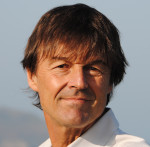
Nicolas
Hulot

© FNH
Nicolas Hulot is a French journalist and environmental activist. He is the founder and president of the Fondation pour la Nature et l’Homme, aiming at supporting initiatives encouraging an ecological transition in France and worldwide.
He was also a TV presenter and producer, hugely popular in France for programmes such as Ushuaïa, le magazine de l’extrême, Opération Okavango and Ushuaïa Nature. He was Special Counsellor to President Hollande for the COP21 and was appointed Minister for the Ecological and Inclusive Transition in May 2017 by President Macron, a position he held until his resignation in August 2018.
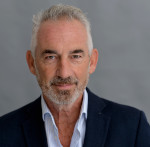
Tim
Jackson

© Graham Flack
Tim Jackson is Professor of Sustainable Development at the University of Surrey and director of the Centre for the Understanding of Sustainable Prosperity (CUSP). His vision for CUSP builds on thirty years of multi-disciplinary research on sustainability and decades of policy experience, in particular his work as Economics commissioner on the UK Sustainable Development Commission. Tim is the author of Prosperity Without Growth, recently published in a substantially revised and updated 2nd edition. He is also an award-winning playwright with numerous radio-writing credits for the BBC.
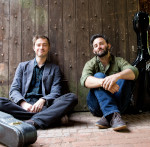
Jimmy Aldridge & Sid Goldsmith

The highly acclaimed folk duo released their new album Many A Thousand in September 2018 and write songs that explicitly engage with environmental concerns. According to The Observer “making common cause between antique songs and present circumstances is one of the grails of modern folk, one this young duo pull off impressively.”
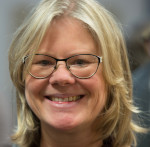
Anna
Kaminsky

Dr Anna Kaminsky was born in the GDR, and studied Theoretical and Applied Linguistics in Leipzig. From 1993 to 1998, she worked as part of different research and exhibition projects in Berlin, Münster, Memorial Sachsenhausen and Museum for German history Berlin. Since 1998, she has been part of the Federal Foundation for the Study of Communist Dictatorship in East Germany, and its director since 2002. She is a member of several international and national Boards and Juries: the upcoming Museum for the communist crimes in Tallinn (Estonia), Memorial Hohenschönhausen, Sachsen-Anhalt, Berlin Wall Museum Bernauer Straße and Erfurt. She has widely published on the every day life and consumerism in communist Germany, as well as the problems of Memorialisation and politics of memory in postcommunist Germany (Gedenkstätten, Gedenkzeichen und Museen zur Diktatur in SBZ und DDR (als Hrsg.), 3., erw. Auflage, Berlin 2016; Frauen in der DDR, Berlin 2016. Memorials remembering communism, Berlin 2018.)
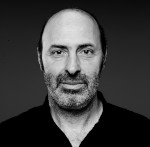
Cédric
Klapisch

Cédric Klapisch is a film director, screenwriter and producer of French cinema. He studied cinema at Paris III (Censier), and then at Paris VIII (Saint Denis, and NYU) for two years. After a short film, Ce qui me meut, he was discovered with the release of Le péril jeune, which featured two breakout stars: Romain Duris and Vincent Elbaz. In his trilogy on the adventures of Xavier Rousseau (Romain Duris), Cedric Klapisch describes a European identity which always in flux, first by exploring the Erasmus experience in L’Auberge espagnole (2002), then taking us on a trip through Europe via London and St Petersburg in Les Poupées russes (2005), before moving to New York for Casse-tête chinois (2013). He is currently filming his thirteenth feature film, Deux Moi, which is due for release on 11 September 2019.
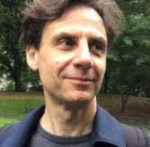
Philippe
Marlière

Philippe Marlière is a professor of French and European Politics at University College London. He was educated in France and obtained a PhD in Social and Political and Studies at the European University Institute in Florence in 2000. His areas of research and expertise are: European social democracy and Left populism. He is writing a book on the French republican ideology and he is a political commentator for various British and French media (BBC, Sky News, The Guardian, Mediapart, France Inter).
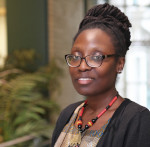
Mame-Fatou
Niang

Mame-Fatou Niang is Associate Professor of French and Francophone studies at Carnegie Mellon University. Her recent research examines the development of Afro-French identities, and the works of second- and third-generation female immigrant writers of the banlieue. Dr. Niang is also a photographer and the co-author of a photo series on Black French Islam. In March 2018, she organised Blackness, Citizenship and the Arts: A Transatlantic Dialogue, a one-day symposium with scholars, artists and activists from the U.S, France, Brazil, Germany, Benin and the Gambia. Dr. Niang is currently working on her second manuscript, which is based on her 2016 documentary Mariannes Noires, and analyses current trends in the politics and lived experiences of Blackness in metropolitan France.
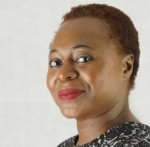
Olivette
Otele

Olivette Otele is Professor of Colonial History, Memory and Politics at Bath Spa University. A fellow of the Royal Historical Society, she is also an advisory board member of the UK’s Arts and Humanities Research Council and a European Commission research grant evaluator. She is the author of several articles and volumes. Her forthcoming and latest publications include: Post-conflict memorialization: missing memorials, absent bodies (Palgrave Macmillan, 2019); African-Europeans: a Hidden History (Hurst, 2019); Histoire de l’esclavage britannique: des origines de la traite aux premisses de la colonisation (Houdiard, 2008). Professor Otele is also a broadcaster (BBC, Sky News, Guardian, Telegraph, Radio France, Jeune Afrique, etc.).
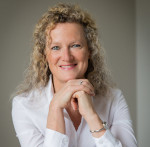
Sophie
Pedder

Sophie Pedder has been Paris Bureau Chief for The Economist since 2003, and regularly writes on French political and economic affairs. She was the recipient of the David Watt journalism prize in 2006, and is the author of Revolution Française: Emmanuel Macron and the Quest to Reinvent a Nation (Bloomsbury, 2018).
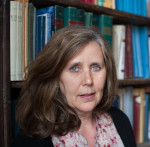
Maria Luiza
Pedrotti

Maria Luzia Pedrotti is a researcher at the French National Centre for Scientific Research (CNRS), and is the Scientific Coordinator of Tara Mediterranean Expeditions, conducting a large-scale assessment of the impact of plastic debris in the Mediterranean ecosystem. She holds a doctorate in science from Pierre and Marie Curie University and works at the Oceanographic Laboratory of Villefranche. She is a specialist in oceanography with an expertise in plankton ecology, the biota associated with microplastics and the characterisation of plastic pollution in the environment.
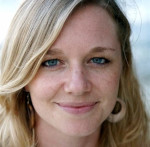
Emily
Penn

Emily Penn is an oceans advocate, skipper and artist. She organised the world’s largest ever community-led waste cleanup from a tiny Tongan island, among many others, and currently runs eXXpedition, a plastics project for all female voyagers, which focuses on the relationship between plastics and female health. She is the youngest and only female recipient of both the Yachtmaster of the Year and Seamaster of the Year awards.
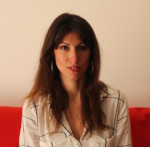
Elisa
Perrigueur

Elisa Perrigueur is an independent journalist and illustrator who works on migration issues and the activity of smugglers in Europe. She creates visual responses to news events, such as on the border city of Calais, expressed through watercolors and painting. She was assistant director for the BBC 2 documentary, Calais, The End Of The Jungle, and regularly writes and draws for Mediapart and Agence France Presse.
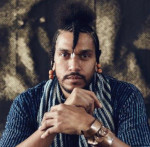
Alexis
Peskine

© Thomas Babeau
Alexis Peskine was born in 1979, Paris, France. He lives and works between Dakar, Senegal and France. Peskine focuses on questions of identity. His powerful portraits literally nailed into wooden planks pay tribute to the many individuals undertaking the dangerous boat journeys from North Africa to Europe. Using several sizes of nails, he drives them in at different depths to create a sense of relief and to introduce a third dimension. He is a 2004 Fulbright Scholar who holds a B.F.A. from Howard University an M.A. and M.F.A. from the Maryland Institute College of Art (MICA). The artist’s use of graphic and commercial images in fine art is informed by his early start in graphic design. At age 15, Peskine was the youngest student to enter the Apprentice Center of Formation for the Graphic Art in Paris; he subsequently worked for Crayures as an industrial designer for clients such as Roland Garros, Malterre and Fly. He has exhibited across the globe (most recently within a solo booth at the AKAA fair in Paris in 2018) and is represented by October Gallery, London.
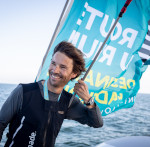
Romain
Pilliard

Romain Pilliard is a sailor and entrepeneur. He discovered a love for sailing whilst with his family in Britanny, competing in regattas during his studies at ESSEC Business School. He participated in the Tour de France à la Voile as a crewmate with the selected team for the America’s Cup. Following his first professional race, Romain decided to go into ocean racing and took part in the Solitaire du Figaro in both 2000 and 2001. He then sailed with Ellen MacArthur as a crewmate on the IMOCA sailing yacht, as well as the ORMA 60 multi-hull ship and MOD 70. He co-founded a sports marketing agency called EOL with his wife, Aurélie, and together they organised the Tour de Belle-Ile in 2008, which quickly became the largest sailing race in France, gathering 500 boats on the starting line. In 2018, he embarked on the Route du Rhum – Destination Guadeloupe, in the prestigious “Ultimes” category. His goal during this legendary solo transatlantic race was to promote the development of circular economy in sailing.
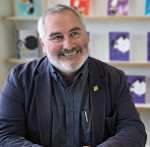
Chris
Riddell

Chris Riddell, the 2015-2017 UK Children’s Laureate, is an accomplished artist and the political cartoonist for The Observer. His books have won a number of major prizes, including an unprecedented 3 CILIP Kate Greenaway Medals in 2001, 2004 and 2016. Goth Girl and the Ghost of a Mouse won the Costa Children’s Book Award 2013. Chris was honoured with an OBE for services to illustration and charity in 2018. He lives in Brighton with his family.
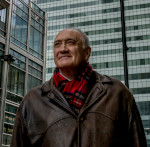
Marc
Roche

© Andrew TESTA / PANOS-REA
Marc Roche is a Belgian and British national, who has been living in London since 1985. He holds a degree in Economics from Université Libre de Bruxelles, and a degree in International Politics from John Hopkins University and the Columbia School of Journalism, From 1979 to 1981, he worked at Reuters in London before moving to Le Soir in Brussels, and finally the Quotidien in Paris as their Washington correspondent. He then moved back to London, where he remained as correspondent for Le Monde for the next twenty-five years. He is currently London correspondent for Le Point and Le Soir.
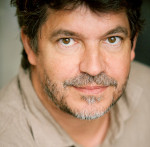
Pierre
Schoeller

© DR
Pierre Schœller was born in Paris. After studying modern literature and cinema, he devoted himself to scriptwriting – most notably for Alain Gomis, Jean-Pierre Limosin, and Merzak Allouache. In 2000, he directed the TV movie Zero Default for Arte on labor conditions. In 2008, he wrote and directed Versailles, a melodrama shot at the Palace of Versailles. Concerned about filming current events, he followed with The Minister, a political thriller which won the Fipresci Prize at Un Certain Regard, 2011 Cannes Film Festival. In 2012, he directed Les Anonymes for Canal +. In December 2013, Arte Reportage offered him the opportunity to film in a refugee camp in Kurdistan, which produced Le Temps Perdu. Since 2013, he has been working with Archipel 35 on One Nation, One King.
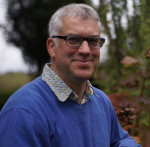
Thomas
Serrier

Thomas Serrier is a historian and Germanist from Le Mans, France. He is currently Professor of Contemporary German History and Culture at the University of Lille; his research focuses especially on German-Polish culture in the 19th and 20th centuries. He is a researcher at IRHiS (Université de Lille/CNRS) and an associate researcher at the Institut d’Histoire du Temps Présent (CNRS/Paris8). From 2011-2017 he was member of the international research project Phantom Borders in East Central Europe which was initiated by Béatrice von Hirschhausen at the Centre Marc Bloch in Berlin. In 2016-17 he was head of the project The location of Europe. Shared and divided memories in a global age supported by the Foundation Volkswagen and organiser of the research residence Lieux de mémoire européens at the Foundation Les Treilles while simultaneously co-directing with Etienne François the volume Europa: Notre histoire, which was published in 2017 at Les Arènes.
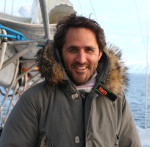
Romain
Troublé

© V. Hilaire – taraexpeditions.org
Romain Troublé holds a double degree in Molecular Biology and Business Management, and is known for his sailing as a participant in the America’s Cup in 2000 and 2003. From 2003 to 2006, he spent a lot of his time the Arctic, Antarctic and Siberia. He was involved in the organisation of both scientific and sports expeditions at the poles, as well as the discovery of frozen mammoths in Siberia. He is the president of the Ocean Platform, a coalition of 80 NPOs and scientific institutions working on issues affecting the oceans. He has been coordinator of the Tara Expeditions since 2003 and is now the executive director of the Tara Foundation.
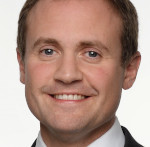
Tom
Tugendhat MP

Tom Tugendhat was elected as Member of Parliament for Tonbridge and Malling in 2015 and was re-elected in 2017. On his return to Parliament, he was elected Chair of the influential Foreign Affairs Select Committee. He ran for office after leaving the British Army in July 2013. As a reservist, he served on operations in Iraq and Afghanistan and, most recently, as the military assistant to the Chief of the Defence Staff. He also worked for the Foreign Office and helped set up the National Security Council of Afghanistan and the government in Helmand Province. Tom grew up in London and Sellinge, near Ashford, read Theology at Bristol University and studied Islamics at Cambridge University for a Master’s. His study included learning Arabic in Yemen. After graduating, Tom was a journalist based in Beirut, writing about the conflict as well as regional politics and economics. Politically, Tom has been campaigning for transparency in financial institutions, including in pensions and asset management companies. He is a Dementia Friend and an active supporter of the Alzheimer’s Society. He has served on the Public Administration and Constitutional Affairs Committee and writes regularly on a wide range of issues for outlets including the Spectator, Daily Telegraph, the Times, and the Financial Times. Tom was appointed MBE for operational service in Afghanistan. He remains a reserve officer, is married to Anissia and has two children.
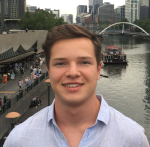
Alexander
Vassilev

Alexander Vassilev is deputy head of European and Asian chapters of European Horizons. European Horizons is a global, student-led policy incubator whose mission is to give young people a voice in shaping the future of Europe and of transatlantic relations. Through our network of more than 60 university chapters across the world, and in collaboration with our partner organisations, European Horizons devises, tests, and advocates for innovative policy ideas to advance European integration. Chapters organise speaker events, hold discussion sessions, conduct research on selected topics, produce op-eds and reports of publishable quality and collaborate with other chapters on an array of projects. Alexander is also a student at University College London reading Geography and Data Science.
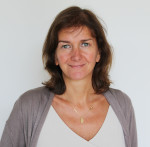
Agnès
Alexandre-Collier

Agnès Alexandre-Collier is a Professor of Contemporary British Civilisation and Politics at the University of Dijon, and currently a visiting CNRS researcher at the Maison Française d’Oxford, where she is co-superviser of the research group on politics and international relations, including a seminar on Brexit, populism and mainstream politics. She is the author of several articles and books including: Les habits neufs de David Cameron (Presse Sciences Po 2010) and Les partis politiques en Grande-Bretagne, with Emmanuelle Avril, Armand Colin (2013).
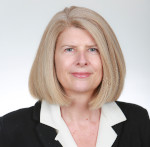
Pilita
Clark

Pilita Clark is an associate editor and columnist at the Financial Times where she writes a weekly column on modern corporate life, as well as features and other articles. She has worked for the FT since 2003 and spent six years as the paper’s environment correspondent. Her work on climate change, water scarcity and other environmental issues has been widely recognised. In both 2017 and 2018, she was named environment journalist of the year at the British Press Awards and in 2015 she was named specialist journalist of the year. She was previously a Washington correspondent for Australian newspapers and a Nieman Fellow at Harvard University.
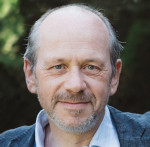
Eric
de Visscher

Eric de Visscher has been active in several arts and music organisations in Belgium and France, and notably IRCAM, the musical institute of the Centre Pompidou in Paris, where he served as artistic director. From 2006 to 2016, he was director of the Musée de la musique (Philharmonie de Paris), and is now Andrew W.Mellon Visiting Professor at the V&A Research Institute (VARI). He has published in several magazines and exhibition catalogues. He is the guest editor of a forthcoming issue of Curator : The Museum Journal on The Sonic Museum, and of a book devoted to Displaying Music in the 21st Century.
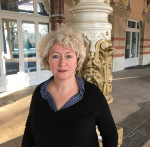
Patricia
Jolly

Patricia Jolly is a senior reporter for Le Monde where she has worked for 25 years. She has developed a rich “on-the-road” experience on all five continents covering a wide range of assignments from sports to crime and terrorism. She currently specialises in environmental threats, global warming issues and climate litigation. Her reporting and writing have taken her from Kivalina island in Alaska to Hawaii active volcanoes through the Great Pacific Garbage Patch, and to Haiti and Nepal where she has covered natural disasters.
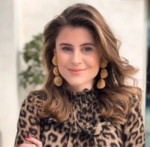
Daisy
Kendrick

Daisy Kendrick is the founder of Ocean Generation (OG), a global collective created to safeguard the future of our planet. Since OG launched in 2017, the organisation has delivered over 7 million ocean educational messages across mobile gaming platforms, organically grown a large social media collective and harnessed the power of ‘influencers’ to create climate campaigns. On the ground OG has schooled over 300 young people from Small Island Developing States (SIDS) how to code and hosted various hackathon events encouraging the growth of green tech and solution building processes for the future of our planet.
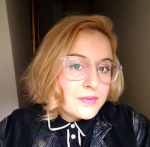
Marie
Le Conte

Marie Le Conte is a French freelance journalist based in London. She specialises in politics and currently writes for The New Statesman, The Guardian and Prospect Magazine among others. She has previously worked at the Evening Standard and BuzzFeed News, and is writing a book on the role of gossip in British politics called Haven’t You Heard…?
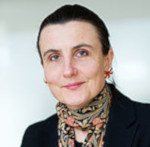
Sharon
Leclercq-Spooner

Sharon Leclercq-Spooner is a member of the board for Fondation EURACTIV, and strategic council for Euractiv Media Network for Europe, which provides informed independent journalism and stakeholder debate on EU politics and policy in 12 languages. She is senior adviser at EPPA, an EU Affairs management consultancy connecting business, government and society. She is currently contributing to the High Level Group on Trade Policy Innovation. She is also on the steering groups of Women in Trade network and of Pro-Europa and supports numerous citizen movements.
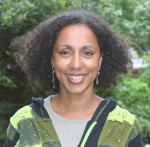
Hélène
Neveu Kringelbach

© J. Pearce
Hélène Neveu Kringelbach is a social anthropologist, and an Associate Professor in African Studies at UCL, where she convenes the MA programme in African Studies. She has previously conducted research on dance in Dakar, Senegal. Her monograph, Dance Circles: Movement, Morality and Self-Fashioning in Urban Senegal (Berghahn Books, 2013) was awarded the 2013 Amaury Talbot Prize in African Anthropology by the Royal Anthropological Institute. More recently she has been researching transnational marriage between Senegal, France and the UK, and binational marriage in France.
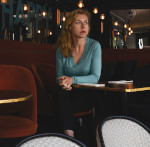
Agnès
Poirier

Agnès Poirier is a Paris-born and London-educated journalist, writer, critic and broadcaster. She is the author of four essays about the different ways in which France and Britain do things and view the world, one of the many topics she regularly discusses on the BBC and CNN and writes about in, among others, The Guardian and The New York Times. She has also taught at Sciences-Po in Paris, and pre-selects British films for the Cannes Film Festival. Her latest book, Left Bank, Art, passion and the rebirth of Paris (1940-1950) was recently published to great critical acclaim (The Times and The Daily Telegraph‘s Best Books of 2018).
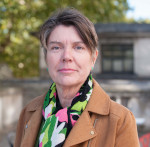
Anna
Reading

Professor Anna Reading is director of the Arts and Humanities Research Institute. She worked in Lodz, Poland as an academic and journalist before and after 1989. She is the author of Polish Women, Solidarity and Feminism (1992); Communism, Capitalism and the Mass Media with Colin Sparks (1998); The Social Inheritance of the Holocaust (2002) and Gender and Memory in the Globital Age (2016). She is also a playwright and her second play, Want, exploring the stories of women in Eastern Europe just after 1989 toured Poland and the UK. Her current work is on migration memory Moving Hearts: Who has the ‘right to belong’? She has just edited Media After Communism: Thirty Years On for the journal Media, Culture and Society.

